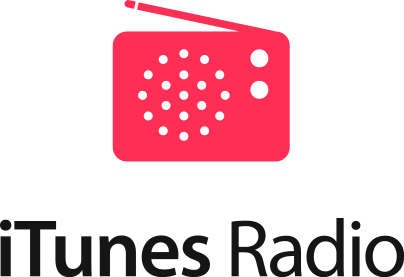MUSIC: iTunes Radio joins the competitive business of Internet radio.
By Jonathan Whang, Staff Writer
On September 15, Apple released the latest software update for its products: iOS 7. Amongst the myriad of changes and improvements in iOS 7, one new feature in particular brings something different to the table. This feature is iTunes Radio, the latest Internet radio streaming service. Will it surpass the ranks of established services such as Pandora and Spotify?
While iTunes Radio was released just a few days ago, Pandora Radio made its mark way back in 2005. Though it wasn’t the first Internet radio to come out, Pandora quickly grew into the most popular one thanks to the “Music Genome Project,” a mathematical algorithm used to predict music similar to what its users like. Before too long, Pandora Radio carried the torch for online streaming. However, Spotify, a service with seven million songs in its library (seven times more than what Pandora had), was created in 2008. Ever since then, the two have been neck-to-neck with each other, competing for dominance in the music-streaming trade.
Then in 2013, enter iTunes Radio. Compared to Spotify and Pandora, iTunes Radio has 27 million songs archived, all of which can be purchased on the spot while listening. There are more features on it than any other online radio service, yet using iTunes Radio is simple. Everything, from the album art to the play controls, is organized and in plain sight. Siri can even be used to show a song title or skip a song. For people who listen to only clean music, iTunes Radio has a switch just for that; you can allow or disallow explicit language, something no streaming service has ever incorporated before.
iTunes Radio seems to be the new best thing around, and this by itself could spell bad news for powerhouse services like Pandora and Spotify. Both services are currently struggling with the licensing fees that come from every song a user plays. To pay their dues, they resort to advertisements and price tags on membership to remove ads, gain full access and/or receive better sound quality. This also means that people who don’t pay for membership receive only partial service and quality and a frequent flow of advertisements. However, iTunes Radio restricts less from its non-paying users and, according to Jaymar Cabebe’s CNET.com review “Built-in Radio that Beats Pandora,” iTunes Radio uses fewer advertisements while still being the top-notch service that it is. If I were Tim Westergren or Daniel Ek (respectively, the founders of Pandora and Spotify), I’d be a little worried.
With its effortless format and innovative features, iTunes Radio is sure to be a success with Internet radio users. Other online music services certainly seem to pale in the light of this new venture by Apple; if they don’t step up their game now, they may face an obsolete future. Whatever happens, iTunes Radio is ready to take the lead. With the torch in its hand, we will follow where it guides us.
Photo courtesy of en.wikipedia.org

